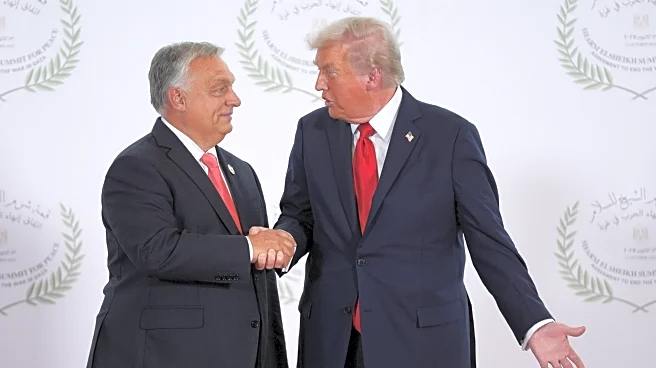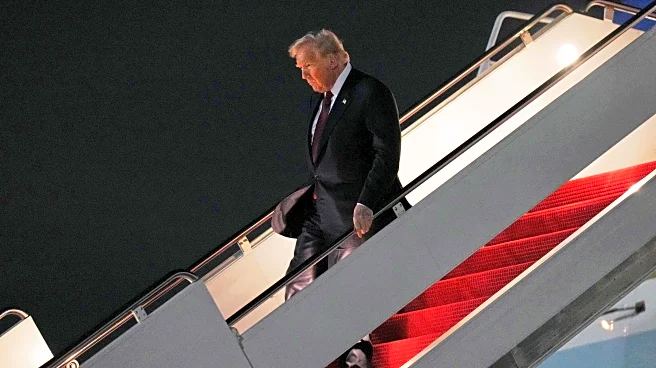What's Happening?
The United States and European Union have intensified sanctions against Russia's oil sector, targeting major companies Rosneft and Lukoil for the first time. These measures aim to pressure Moscow into
peace negotiations over Ukraine. As a result, Russian crude oil is trading at a significant discount in Asia, with Indian and Chinese refiners reportedly reducing their purchases. Two tankers, Sikar and Monte 1, carrying approximately 1.5 million barrels of Russian Urals crude, have been anchored at sea near the Suez Canal for over a week. This situation highlights the logistical and commercial challenges faced by Russian oil exports due to the sanctions, which are deterring buyers and complicating delivery routes.
Why It's Important?
The sanctions on Russia's oil sector have significant implications for global oil markets and geopolitical dynamics. By targeting Rosneft and Lukoil, which together account for about 5% of global oil supply, the U.S. and EU are exerting pressure on Russia's economy, potentially reducing its revenue and ability to finance operations. The reduced demand from major Asian refiners like India and China could lead to further economic strain on Russia, while also affecting global oil prices and supply chains. These developments may influence international relations and energy policies, as countries navigate the complexities of sanctions and oil trade.
What's Next?
The ongoing sanctions and their impact on Russian oil exports may lead to further diplomatic negotiations and adjustments in global oil trade strategies. Countries dependent on Russian oil might seek alternative sources, potentially reshaping energy alliances and market dynamics. Additionally, Russia may explore new markets or methods to circumvent sanctions, which could lead to further geopolitical tensions. The situation remains fluid, with potential for further sanctions or diplomatic efforts to resolve the conflict in Ukraine.
Beyond the Headlines
The sanctions against Russia's oil sector raise ethical and legal questions about the use of economic measures to influence geopolitical outcomes. The impact on global oil markets also underscores the interconnectedness of energy supply chains and the potential for long-term shifts in energy policies and alliances. As countries adapt to these changes, there may be increased focus on energy independence and diversification, influencing future investments in renewable energy and alternative sources.













